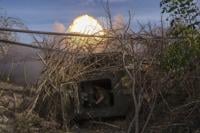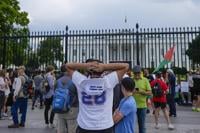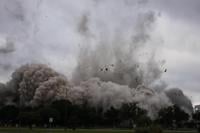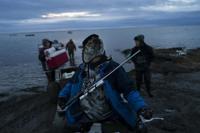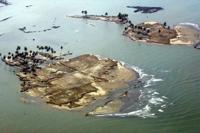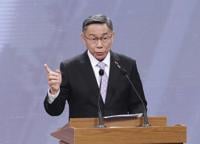KYIV, Ukraine (AP) — The Russian government wants to earmark 32.5% of its spending next year for defense, a record amount and up from a reported 28.3% this year, as Moscow seeks to prevail in the war in Ukraine.
The government’s draft budget released Monday proposes spending just under 13.5 trillion rubles (over $145 billion) on national defense. That is about 3 trillion rubles ($32 billion) more than was set aside for defense this year and was the previous record.
The Ukraine war is Europe’s biggest conflict since World War II and has drained the resources of both sides, with Ukraine getting billions of dollars in help from its Western allies.
Russia’s forces are bigger and better-equipped than Ukraine’s, and in recent months the Russian army has gradually been pushing Ukrainian troops backward in eastern areas.
Ukraine President Volodymyr Zelenskyy last week in pursuit of continuing financial and military support as the war approaches its three-year milestone next February.
Russian President Vladimir Putin is also looking how to sustain his war effort as military spending has placed a huge strain on the Russian economy.
Earlier this month, Russia’s central bank raised its key interest rate by a full percentage point to 19% to combat high inflation. It held out the prospect of more rate increases to return inflation from the current 9.1% to the bank’s target of 4% in 2025.
According to the draft budget, spending on defense should decline in 2026.
The proposed budget could still change as it goes through three readings in the State Duma, Russia’s lower parliament house, and then goes to the Federation Council, the upper house, before Russian President Vladimir Putin signs it into law.
Meanwhile, Putin on Monday signed a call-up order for 133,000 conscripts in the autumn military draft, which is a routine number for seasonal conscription campaigns.
In September, he ordered the country’s military to by 180,000 to a total of 1.5 million. Overall military personnel would be about 2.4 million.
Overnight, Russia fired missiles and drones at 11 regions of Ukraine, the Ukrainian air force said Monday, in a 33rd consecutive night of aerial attacks behind the front line and set a new monthly record of drone barrages.
It was the first time Russians launched more than 1,000 Shahed drones in a month. It was also the first time the Iranian-made drones were used in every aerial attack on each day of the month.
In Kyiv, multiple explosions and machine gun fire could be heard throughout the night as the Ukrainian capital’s air defenses fought off a drone attack for five hours.
No casualties were reported in Kyiv or elsewhere, though a “critical infrastructure object” caught fire in the southern Mykolaiv region, Gov. Vitalii Kim said, without elaborating.
Russia has increasingly deployed , rather than more expensive missiles, in its aerial bombardment of Ukrainian cities since its of its neighbor in February 2022.
It launched more than 1,300 Shahed drones at Ukraine in September alone — the highest number of drone attacks in a single month since the war began.
Ukraine, too, has developed a new generation of drones for the battlefield and for long-range strikes deep inside Russia. More than 100 Ukrainian drones on Sunday, Russian officials said.
Also Monday, Putin released a video marking the second anniversary of the annexation of four Ukrainian territories and again accused the West of turning Ukraine into “a military base aimed at Russia.”
Putin was speaking to of the Donetsk, Luhansk, Kherson and Zaporizhzhia regions of Ukraine after a referendum held in 2022 which was denounced by the West as a sham. Russia also illegally annexed Crimea in 2014.
Since 2022, Putin said, businesses in the occupied areas are being “actively restored” and hospitals and schools are being rebuilt.
Thousands of Ukrainians fled from the four regions as a result of Russia’s invasion, but Putin said Russia’s military operation in the country was to defend residents’ “well-being” and the “future for our children and grandchildren.”
___
Litvinova contributed from Tallinn, Estonia.
___
Follow AP’s coverage of the war in Ukraine at


